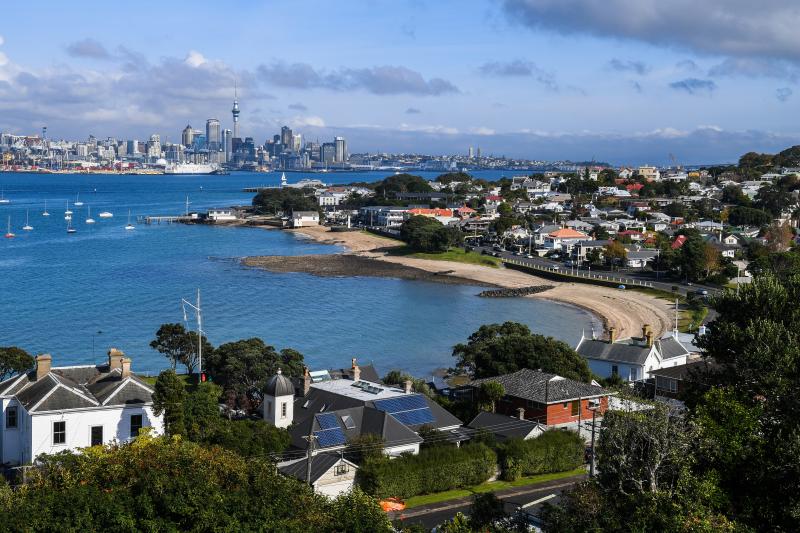Why is New Zealand restricting foreign purchases?
- By Sumantra Maitra
 0 Comment(s)
0 Comment(s) Print
Print E-mail China.org.cn, September 4, 2018
E-mail China.org.cn, September 4, 2018

In an unsurprising move, the New Zealand government, under Labour Prime Minister Jacinda Arden, has banned the sale of homes to foreign buyers. Finance Minister David Parker thundered that New Zealanders refuse to be tenants in their own country, and that the ban will make houses affordable to locals, and rich foreigners won't be able drive up the price.
This, of course, isn't a new line, previously in 2017, the New Zealand government had an official policy of having a New Zealand primarily for New Zealanders, and to control overseas investment. The language of the bill looked similar to the original "White Australia" policy, which restricted foreigners to buy or own land in Australia.
The twist in the tale is, this move in New Zealand comes from the Labour government -- a political party, at least theoretically, opposed to xenophobia. The opposition National Party sounded like the voice of sanity. Finance spokeswoman Amy Adams was quoted by Guardian to say that the buyer ban was indeed xenophobic, and will stifle business investment and confidence, and accused the Labour government of creating a panacea which will make the problem far worse in the future.
When I was living in New Zealand I observed a strange contradiction in the Kiwi culture. On one hand, New Zealand is what anyone would expect of a post-modern society. It's a country where both the political parties are extremely socially liberal as one should expect from a Western society, with the left of center parties mostly focusing on sexual and gender equality, rather than class. But there's also a strain of resentment towards foreigners and foreign capital. The idea that a native-born New Zealander will have to work in a company or business or café owned and operated by a Chinese, or an Indian or an American is an anathema to some.
That subtle streak of xenophobia has been common in the far-right segment of politics, such as in political parties like the New Zealand First, which is now a current coalition partner of the Labour party, in one of the strangest ideological couplings in Western polity. These factors are reflected in the current decision, even though as per BBC and the data from the Real Estate Institute of New Zealand, about 82 percent of houses were bought by Kiwis, and only 3 percent overall were bought by foreigners.
Consider this. New Zealand is a country of ample free space, and only a tiny population of around 5 million, concentrated mostly in the North Island. However, only around one fourth of adults are homeowners, with house prices in Auckland completely unaffordable. The housing bubble in New Zealand isn't a new thing, and has been a cause of concern for economists for over two decades. New Zealand has also recently been a destination of massive Chinese and American capital investment, with millionaires buying properties, including Peter Thiel, the founder of Paypal. This new move of restricting property owners will disproportionately target Chinese and Americans.
Ultimately however, this is a shortsighted move. The stopping of the selling of land to foreigners won't magically multiply the number of houses for New Zealand's future generations. In fact, this is another Trumpian move of scapegoating the foreigners and hardworking immigrants who look to invest and settle in New Zealand.
The solution to the housing crises across the Western world is not one of demand or cost, but one of supply. The building regulations in Western countries are stifling, and as a result not many towers and apartments are built. People pay more attention to aesthetics, and not enough to needs.
Likewise, this new move by the New Zealand government would not just stifle investment and the good will of a country which was at least nominally welcoming to foreign investors, but also protect the domestic market from competition. Ultimately, it is New Zealand's loss, if Asian and American property owners and capital investment moves to other Pacific islands.
Sumantra Maitra is a columnist with China.org.cn. For more information please visit:
http://www.ccgp-fushun.com/opinion/SumantraMaitra.htm
Opinion articles reflect the views of their authors only, not necessarily those of China.org.cn.





